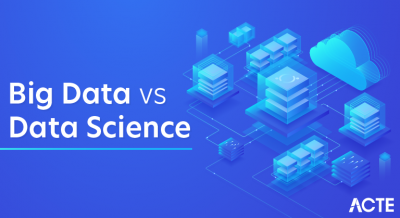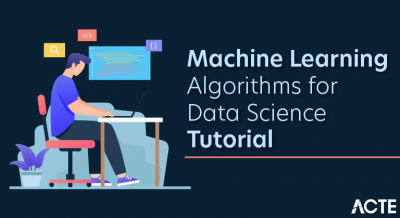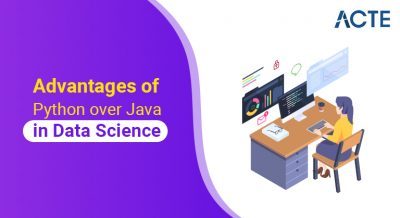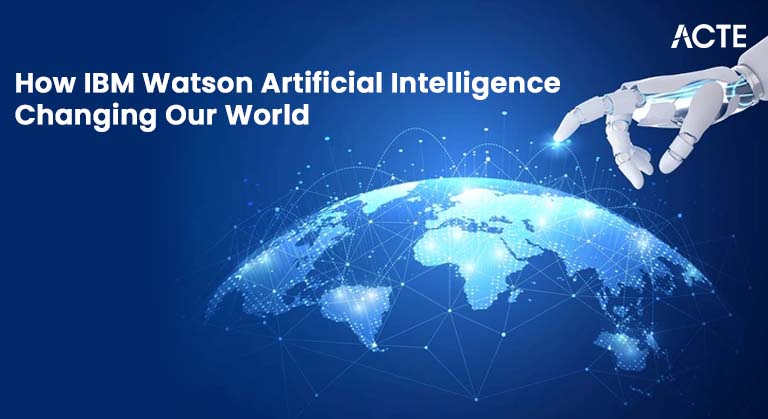
- What is IBM Watson?
- Key Capabilities
- Watson in Healthcare
- Watson in Customer Service
- Watson in Finance
- Watson in Research and Development
- Watson APIs and Tools
- Conclusion
What is IBM Watson?
Artificial Intelligence (AI) refers to the creation of computer systems that can perform tasks traditionally requiring human intelligence. These tasks include learning from data, reasoning to make decisions, solving problems, perceiving environments, and understanding natural language. AI encompasses a broad spectrum of technologies, from simple rule-based systems that follow predefined instructions to advanced deep learning neural networks capable of analyzing massive datasets and making complex predictions. Since its beginnings in the mid-20th century, AI has undergone significant transformations. Early AI relied heavily on symbolic logic and rule-based programming, where knowledge was explicitly coded by experts. Over time, advances in algorithms, particularly machine learning, enabled AI systems to learn patterns directly from data rather than relying solely on preprogrammed rules a core concept emphasized in Data Science Training. The introduction of deep learning, inspired by the structure of the human brain, has further accelerated AI’s capabilities by enabling machines to process unstructured data such as images, speech, and text with remarkable accuracy. The rapid growth of AI is fueled by three main factors: increasing computing power, the explosion of data generated from digital sources, and continual improvements in algorithms. These elements have combined to make AI technologies pervasive in everyday life, powering applications such as voice assistants like Siri and Alexa, autonomous vehicles, recommendation systems, fraud detection, and complex data analytics. As AI continues to advance, it promises to revolutionize industries, enhance productivity, and create new opportunities, while also raising important ethical and societal considerations.
Interested in Obtaining Your Data Science Certificate? View The Data Science Course Training Offered By ACTE Right Now!
Key Capabilities
IBM Watson provides a diverse set of key capabilities that position it as a leading AI platform for businesses across various industries. One of its primary strengths is natural language processing (NLP), which enables Watson to understand, interpret, and respond to human language in an intuitive and conversational manner. This allows organizations to develop chatbots, virtual assistants, and applications that interact naturally with customers or employees. Watson’s ability to analyze unstructured data, including text documents, emails, and social media content, helps uncover valuable insights that traditional analysis methods might overlook. Machine learning is another essential capability of Watson. It enables the system to learn from data automatically and improve its performance without explicit programming, highlighting the Role of Citizen Data Scientists in Today’s Business. This functionality supports the creation of predictive models to forecast trends, detect anomalies, and recommend actions based on past data. Watson also uses deep learning techniques that enhance its capacity to analyze complex data types such as images, audio, and video. In addition to these, Watson offers powerful data analytics and visualization tools. These allow users to explore data interactively and make informed, data-driven decisions. Watson’s automation features help businesses streamline workflows by reducing manual and repetitive tasks, minimizing errors, and improving overall operational efficiency. Security and compliance are key elements of Watson’s design.
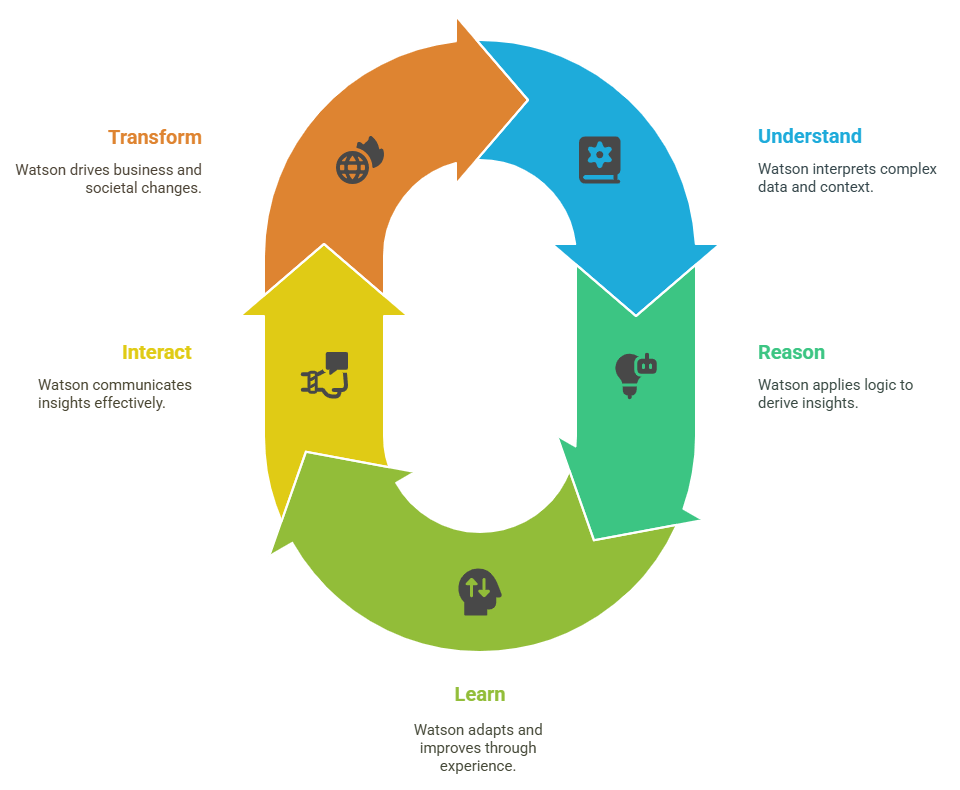
It ensures that sensitive data is protected and handled according to relevant regulations and industry standards. With a scalable, cloud-based architecture, Watson allows rapid deployment of AI solutions and adaptability as business needs change. In summary, IBM Watson’s capabilities in NLP, machine learning, data analytics, automation, and security help organizations leverage AI for smarter, faster decision-making.
Watson in Healthcare
- Clinical Decision Support: Watson assists doctors by analyzing vast volumes of medical literature, clinical guidelines, and patient data to suggest evidence-based treatment options. This enhances diagnostic accuracy and supports more informed decisions.
- Oncology Treatment Planning: Watson for Oncology helps oncologists by reviewing cancer patient records and suggesting personalized treatment plans. It evaluates medical journals, case studies, and drug interactions to identify the most effective therapies.
- Medical Imaging Analysis: Watson can process and interpret medical images, such as MRIs and CT scans, to help detect anomalies, showcasing one of the Top Reasons To Learn Python. By comparing images to large databases, it supports radiologists in identifying patterns and making accurate diagnoses.
- Population Health Management: Watson analyzes large-scale health data to identify at-risk populations, track disease trends, and suggest preventive care strategies, supporting better public health outcomes.
- Drug Discovery and Development: Watson accelerates drug research by examining scientific publications, clinical trials, and chemical data to predict drug effectiveness and identify promising compounds for further study.
- Patient Engagement: Watson powers virtual assistants and chatbots that interact with patients, answer health-related questions, and help manage appointments and medications, improving access to care.
- Operational Efficiency: Watson helps streamline administrative tasks like billing, medical coding, and claims processing, allowing healthcare providers to focus more on patient-centered care.
- Virtual Agents and Chatbots: Watson powers AI-driven virtual assistants that handle customer inquiries in real time. These bots can answer FAQs, resolve common issues, and escalate complex queries to human agents, improving response times and availability.
- Natural Language Processing (NLP): Watson understands and processes human language with high accuracy. It can interpret customer intent, tone, and context to provide relevant, conversational responses, creating more natural interactions, skills developed through Data Science Training.
- 24/7 Support: Watson enables businesses to offer round-the-clock service, reducing wait times and ensuring customers receive assistance whenever needed, regardless of time zones or business hours.
- Personalized Customer Experience: Watson uses data from previous interactions and customer profiles to tailor responses and recommendations. This personalization builds trust and enhances customer satisfaction.
- Agent Assistance: Watson can assist human agents by quickly retrieving relevant information, suggesting solutions, and providing real-time support during live interactions. This reduces handling time and improves accuracy.
- Multichannel Integration: Watson supports various communication channels web, mobile, email, and voice ensuring a consistent experience across platforms and enabling seamless customer engagement.
- Analytics and Insights: Watson analyzes customer interactions to identify trends, pain points, and feedback. Businesses use these insights to improve services, optimize workflows, and anticipate customer needs.
- Literature and Data Analysis: Watson can rapidly analyze vast amounts of scientific papers, patents, and technical documents. This helps researchers identify relevant information, trends, and discoveries without spending weeks manually reviewing materials.
- Hypothesis Generation: By finding patterns and relationships in large datasets, Watson helps researchers form new hypotheses or validate existing ones. This leads to more data-driven and targeted experiments.
- Collaboration Enhancement: Watson organizes complex research data in centralized platforms that are accessible to global teams, utilizing concepts like Python Keywords for efficient data management.
- Drug Discovery Support: In biomedical research, Watson processes genetic data, clinical trials, and molecular interactions to identify potential drug candidates. This accelerates early-stage research and reduces development timelines.
- Design Optimization: Engineers and developers use Watson to simulate different design scenarios and analyze variables. This helps improve product prototypes and enhances performance with fewer costly trial runs.
- Innovation Discovery: Watson reveals hidden connections across industries, technologies, and consumer needs. These insights spark innovation by identifying new opportunities for product development and market expansion.
- Intellectual Property Management: Watson tracks patent databases and research publications to identify innovation gaps and prevent infringement. This strengthens R&D strategy and protects intellectual property.
To Earn Your Data Science Certification, Gain Insights From Leading Data Science Experts And Advance Your Career With ACTE’s Data Science Course Training Today!
Watson in Customer Service
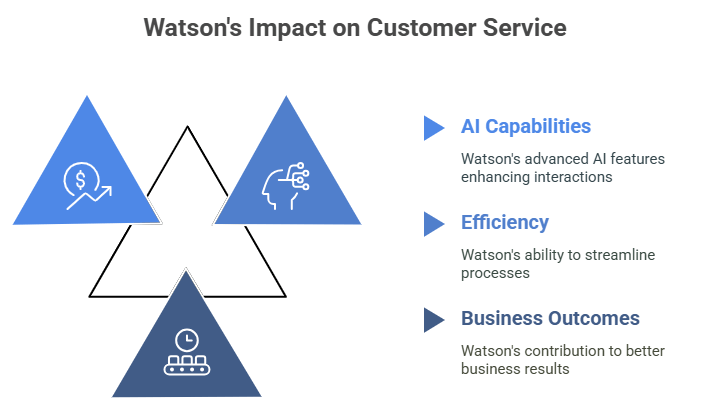
Watson in Finance
IBM Watson has made significant impacts in the finance industry by helping institutions improve decision-making, risk management, and customer service. Watson’s ability to process vast amounts of structured and unstructured data enables banks and financial organizations to gain deeper insights into market trends, customer behavior, and regulatory changes. For example, Watson’s natural language processing capabilities allow it to analyze financial news, reports, and social media to identify potential risks and opportunities in real time. In risk management, Watson supports fraud detection by recognizing unusual patterns and flagging suspicious transactions quickly. This helps reduce losses and improve security. It also aids in regulatory compliance by continuously monitoring transactions and activities to ensure they meet legal requirements, which is a key aspect of What is Data Science. This proactive approach reduces the chance of fines and reputational damage. Customer service is another area where Watson provides value in finance. AI-powered chatbots and virtual assistants offer personalized support, answering queries about accounts, transactions, or loan applications 24/7. This improves customer satisfaction while reducing the workload on human agents. Additionally, Watson helps financial advisors by providing data-driven recommendations tailored to individual client needs, enhancing investment strategies and portfolio management. Moreover, Watson’s predictive analytics enables better forecasting of market conditions and economic trends. This helps institutions make informed decisions about lending, investments, and resource allocation. With its cloud-based architecture, Watson allows financial organizations to scale their AI capabilities as needed, ensuring agility in a fast-changing market. Overall, IBM Watson empowers the finance sector with advanced AI tools that improve efficiency, security, and customer engagement, driving smarter financial services.
Want to Pursue a Data Science Master’s Degree? Enroll For Data Science Masters Course Today!
Watson in Research and Development
Watson APIs and Tools
IBM Watson offers a comprehensive suite of APIs and tools that enable developers and businesses to build intelligent applications and automate processes. These APIs cover a wide range of AI capabilities, including natural language understanding, speech-to-text, text-to-speech, language translation, and visual recognition. With Watson’s natural language understanding API, applications can analyze text to extract keywords, sentiments, entities, and emotions, helping businesses gain deeper insights from customer feedback, social media, or documents. The speech-to-text and text-to-speech APIs allow seamless voice interactions, powering virtual assistants and accessibility solutions. Watson also provides conversation APIs that enable developers to create chatbots and virtual agents capable of understanding user intent and responding appropriately. These tools support complex dialogues, allowing businesses to automate customer support and improve engagement, highlighting The Importance of Machine Learning for Data Scientists. For image and video analysis, Watson’s visual recognition API can identify objects, scenes, and even analyze facial expressions, which is useful in retail, security, and healthcare sectors. In addition to these APIs, IBM Watson offers tools for building, training, and deploying machine learning models without requiring extensive coding experience. The Watson Studio platform is a collaborative environment where data scientists and developers can prepare data, develop models, and deploy AI applications efficiently. It supports multiple programming languages such as Python and R, and integrates with open-source frameworks. Security is a key feature of Watson APIs and tools. They comply with industry standards to protect sensitive data during processing and transmission. Watson’s cloud-based infrastructure ensures scalability and reliability, allowing businesses to deploy AI solutions that can grow with their needs. In summary, IBM Watson’s APIs and tools provide powerful, flexible options for integrating AI capabilities into applications, enabling smarter, more responsive solutions.
Preparing for Data Science Job? Have a Look at Our Blog on Data Science Interview Questions & Answer To Ace Your Interview!
Conclusion
IBM Watson has played a pioneering role in advancing artificial intelligence from experimental research to practical applications that deliver real-world value. By combining advanced cognitive capabilities such as natural language processing, machine learning, and data analytics with cloud-based flexibility, Watson enables organizations across various industries to unlock insights from their data more effectively than ever before. Its ability to process and analyze vast amounts of structured and unstructured data allows businesses to make faster, smarter, and more informed decisions. Watson’s impact spans multiple sectors including healthcare, where it assists in diagnosing diseases and personalizing treatment plans, and finance, where it improves fraud detection, risk management, and customer engagement, demonstrating the value of Data Science Training. Beyond these fields, Watson is also transforming retail, manufacturing, telecommunications, and government services by automating complex processes and enabling data-driven innovation. Despite its many successes, challenges remain in the AI landscape, including addressing ethical concerns, improving transparency, and ensuring data privacy. IBM continues to evolve Watson by incorporating new technologies and developing solutions that tackle these issues while expanding Watson’s capabilities. As Watson advances, it promises to further influence the AI ecosystem by making artificial intelligence more accessible and practical for businesses of all sizes. Its ongoing development aims to empower organizations to extract maximum value from their data, improve operational efficiency, and foster innovation. With Watson, the future of AI looks poised to enhance decision-making worldwide, driving progress in diverse areas and shaping how humans and machines collaborate.


